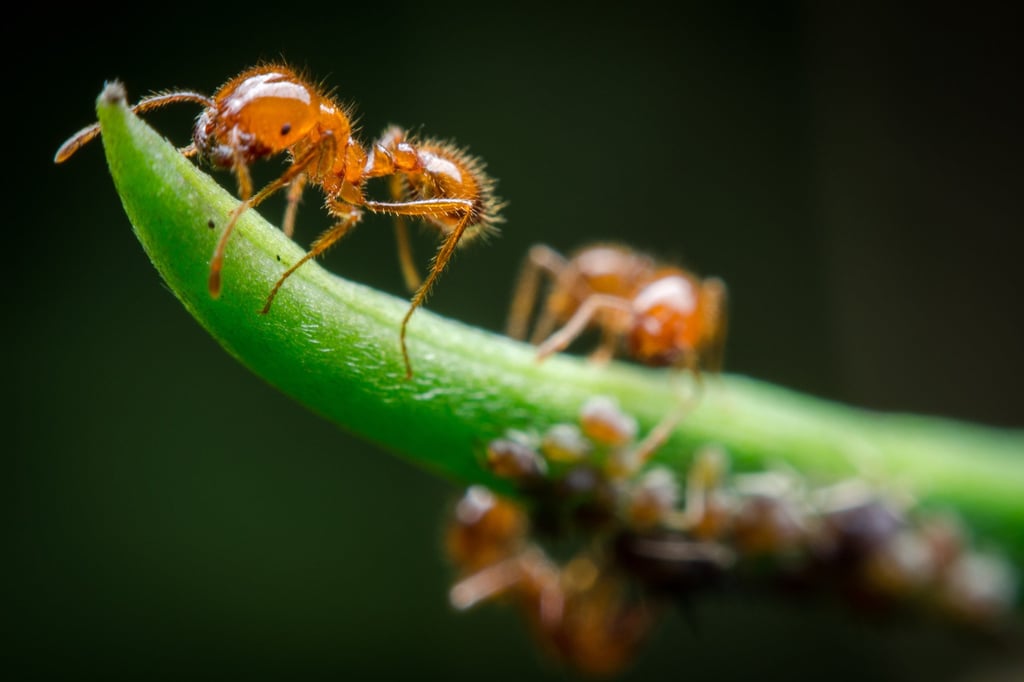Here’s how Hong Kong hikers can protect themselves from insect bites, heatstroke after worker dies
“For example, people who cannot release excess heat from their bodies when surrounding temperatures are very high will be at risk of heatstroke,” Siu said. “An acute heatstroke can be life-threatening.”
He pointed out that an allergic reaction to insects or plants could also be fatal.
“A person’s immune system will normally be able to detect external substances and go through a process to fight or remove them. But more sensitive immune systems may react violently, which can cause shocks and put lives at risk,” Siu said.
While venomous species exist in Hong Kong, the toxin level is not high and it is “very rare” that they could cause life-threatening conditions, according to Siu.

2. Watch out for these insects
Hong Kong Entomological Society vice-chairman Yiu Vor advised hikers to avoid the hives of red imported fire ants, which could inject venom into the human body through their stings that are similar to wasps or bees.
“Their stings can cause extreme pain and a lot of the time it’s multiple stings because they are a gregarious species,” Yiu said, adding they would most likely sting when their hives were compromised.
“They are fast. To avoid them, one must try to look out for their hives, which will typically be a small hill 10cm to 20cm high if not more. Do not kick them for fun.
“Sometimes they are disguised in plants, so it’s best to stick to the main hiking trails and avoid bushes.”
Bees or wasps – such as hornets – are another type of insects the public should look out for, according to Yiu.
He added they were also gregarious and would show strong resistance to anyone compromising their hives with venomous stings.
3. What to do if you are bitten
Emergency medicine specialist Siu said most insect bites in Hong Kong would only cause discomfort to the victim with redness, swelling or soreness.
He said it was hard to say what would might cause an allergic reaction as it differed from person to person.
“Mild allergic reactions can manifest as skin rashes and itches, and if they do not worsen, they will typically subside gradually and there is no need to visit a doctor,” Siu said, urging the public to seek medical help if symptoms such as fainting or difficulty in breathing were observed.
If a person has had an allergic reaction before, he or she will usually have been prescribed with an epinephrine auto-injector, he said.
Siu said that gauging the seriousness of the symptoms would mean observing the victim’s breathing and blood circulation. If he or she fainted or displayed difficulty in breathing and paleness, medical help should be sought immediately.
Siu also said a picture of the insect would make diagnosing easier.
The sudden pain and stress induced by an insect bite could also potentially cause a spike in adrenaline and heavier pressure on the heart, which could trigger a heart attack, he added.
4. How to recognise heatstroke
Siu said there was typically a broad range of heatstroke symptoms. While most people might gradually progress from milder to more serious ones, he did not rule out a sudden worsening of a situation to the point of becoming life-threatening.
He said that in most cases, mild symptoms such as heat cramps were caused by dehydration or a brief moment of passing out before becoming conscious again. Leg cramps could also be caused by a lack of electrolytes.
“The next stage will be heat exhaustion, which is still reversible,” he said.
“Patients can be dizzy, nauseous and have a shortness of breath. They can throw up and will struggle to do anything. People should stay in the shade, replenish with water and electrolytes and seek medical help if symptoms do not improve.”